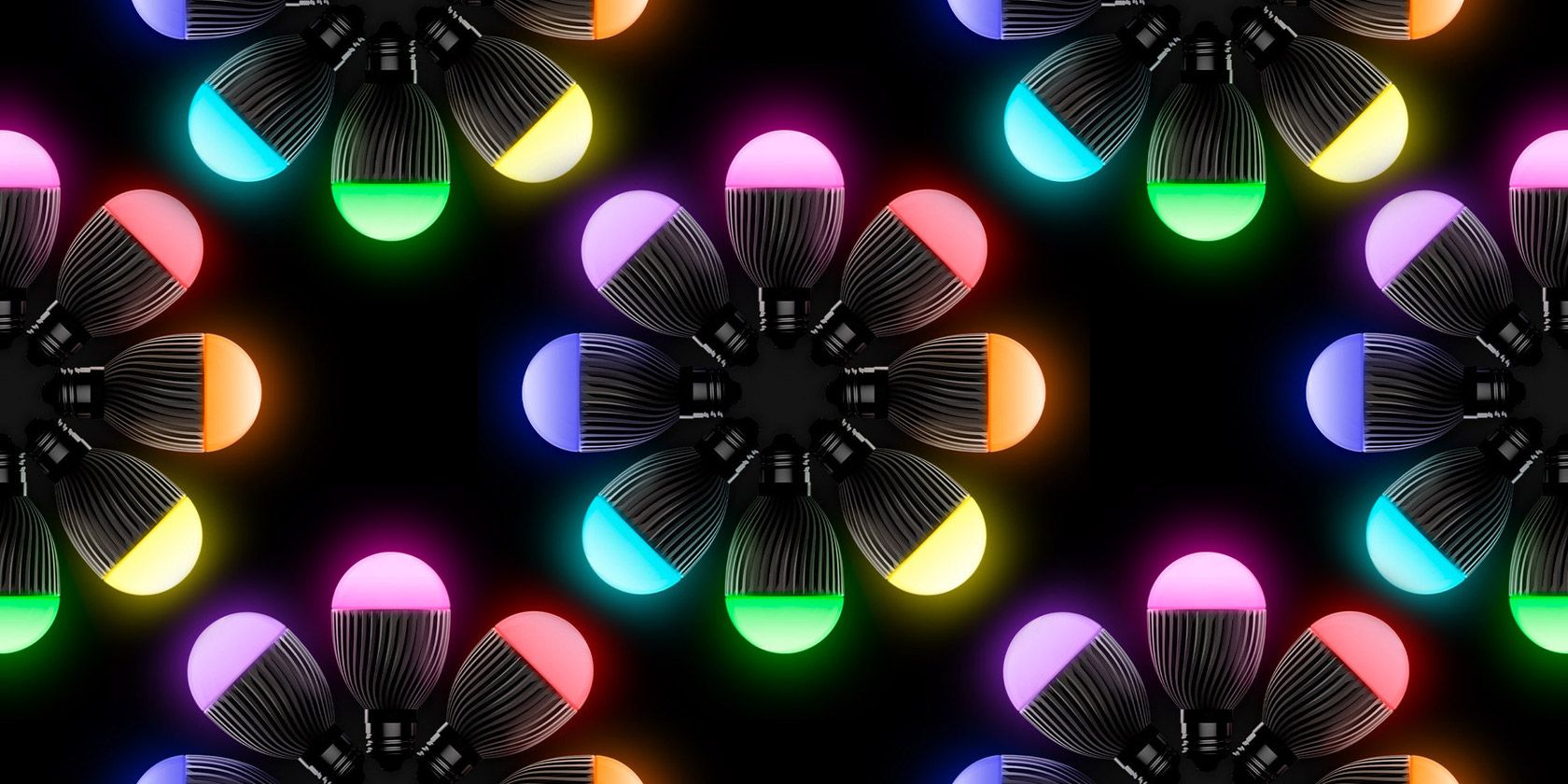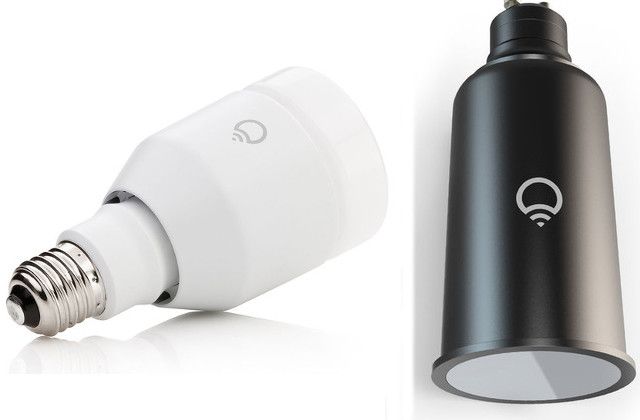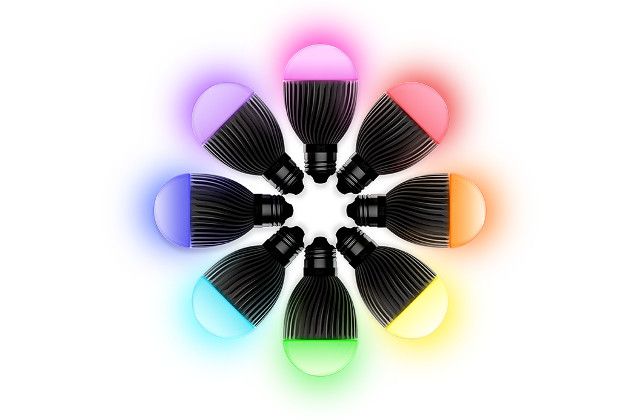The Philips Hue system is the big kid on the block when it comes to smart lighting, but there are some worthy alternatives. We've picked three of the best that all offer the same basic feature set and hackability.
Limitless LED / MiLight
According to the Limitless LED about page, both brands are held by the same company and are manufactured by the same partner. There are some difference between the Wi-Fi bridge supplied by each company, but the brands appear to be interoperable. From here on, I'll just be calling them Limitless LEDs.
A much cheaper alternative, a single Limitless LED bulb costs between $18 and $27, depending on the wattage (MiLight sells both 6W and 9W bulbs). Downlights and spotlights are also available, and a starter kit of what appears to be the MiLight (sold as "Gbargain" on Amazon) can be had for $66. Like the Hue, Limitless LEDs also need a Wi-Fi bridge.
Although these bulbs look suspiciously like cheap knock-offs of other lighting systems, they have relatively good reviews, and do come a whole lot cheaper than the major brands. And while they don't pack the features of some of the others (there's no "music matching" mode, or time-based dimming, for example), they do provide a solid 820 lumens in the 9W bulb, and are hackable, so you can potentially make them do anything you want. And at 50,000 hours of lifespan, you won't be replacing these for a long time.
There are some differences in the Wi-Fi bridge, but you should be able to use the Limitless LED open-source API to hack either set of lights.
Visit the Limitless LED shop or the MiLight shop to purchase now.
LIFX
Although they're a bit more expensive than Hue bulbs at $99 each, LIFX bulbs do have a few advantages. The most compelling one is that there's no need for a bridge, so all you need is a smartphone with the companion app. The bulb itself, available in white or gun metal gray, also looks great, which not all smart lights can say.
The companion app doesn't have great reviews, but the bulbs have been well received, and can put out a wide range of vibrant colors at up to 1,000 lumens. They're rated for 40,000 hours, too, so you won't need to worry about replacing them for a very long time. The number of features in the LIFX bulbs doesn't quite stand up to Hue, but geo-fencing, IFTTT integration, morning/evening dimming, music sync, and social media alerts are currently available, with other plans in the works. And a downbulb (pictured above right) is coming soon.
Buy a LIFX bulb from Amazon, or visit the LIFX store for 4-packs, 10-packs, and slightly lower prices ($80 / bulb)
Misfit Bolt
Misfit is best known for their personal fitness devices, but they're making an entrance into the smart home scene with their Bolt bulbs, which have an expected release date of mid-March. They look to compete with the Hue in terms of light and color quality, and at $50 per bulb (and $130 for a three pack), provide a solid value. They also don't need a Wi-Fi bridge or smart home hub, which is a plus, both for ease of setup and reducing cost. You can even control it from Misfit's fitness devices.
Millions of colors, over 800 lumens, simulated sunrise, and the ability to sync the bulbs to your sleep cycle with a Misfit fitness device make the Bolt a very attractive option. Although there's little indication so far of how hackable the bulbs will be, or if there will be an open API, I'm confident that someone will find a way to give users the ability to customize their smart bulbs. The same goes with IFTTT integration—no indication yet, but I'm hopeful.
Of the Philips Hue competitors that I've seen, this looks to be the most promising.
Pre-order the Bolt from Misfit
A Field Ready for Innovation
The high-color LED bulb market is currently a little sparse, with Philips leading the way. But other companies are looking to catch up, and they're certainly making headway into the field. Of course, if you're looking for bulbs that don't change colors, and you just want to be able to control normal energy-efficient LED lights from your phone, you have more options: Insteon and WeMo (smarten your lamps with Belkin WeMo) both offer lights that'll fit your needs.
Have you used any of these smart bulbs? Or do you know of others that are good competitors to the Hue? Share your thoughts below!



